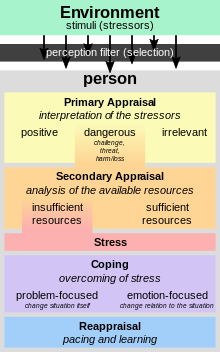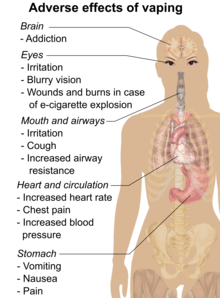A Brief History
On December 31, 2018, History and Headlines takes a look at one of the most popular New Year’s Resolutions that Americans claim to be dedicated to, at least as tallied by Google searches. That resolution is to develop a healthier lifestyle, by losing weight, exercising, reducing stress and eating healthier. We take a few minutes to offer some advice on how to achieve the goal of improving one’s health in a variety of ways. Please feel free to offer any particularly good advice you believe may be helpful to other readers. If you think we have offered poor or incorrect advice, please let us know.
Digging Deeper
The first big step to being healthier is to reduce stress. Easier said than done! Some techniques for reducing stress start with using exercise as a stress relief method. Burning up calories by jogging, walking, swimming, weightlifting or other forms of exercise reduces cortisol and other stress related negative factors in your body. If you find competitive sports such as bowling, handball or softball to just increase your stress due to the competitive nature or the game and pressure to perform, stick to single person exercise. Exercise has the added benefit of increasing health and perhaps reducing weight, another main goal of those making New Year’s resolutions. Try to avoid people that make you feel stressed. If this is not possible, we recommend consulting books about the subject of not allowing other people to stress you out or consulting a therapist. If your driving commute induces stress, explore possible alternatives such as ride sharing, public transportation, or changing jobs so that you can work from home or closer to home. You may feel compelled to work overtime and additional jobs to make extra money, but seriously evaluate the money versus your health and you may be better off making less money and being healthier and happier with less stress.

Relaxation techniques have the potential to reduce stress and provide a certain amount of exercise depending on the system you pursue. Yoga, Tai Chi, meditation, even lounging in a hot tub may provide the ticket to relaxation and peace you have been looking for. Perhaps setting aside a scheduled time for reading might do the trick. Listening to your favorite tunes with headphones on to block out outside noise may provide some relaxation as well. Perhaps a trip to a local spa for a nice massage can help. Watching a home aquarium or relaxing with your dog or cat may also provide health benefits, as long as having pets does not induce other stress factors. Overall, pets are generally a great way to relax and reduce stress.
Losing weight is a common method of increasing health and achieving a goal for the New Year, but this particular goal is one of the most elusive of all. Obviously changing eating habits is a key, as exercise alone can never burn up as many calories as you can easily eat in a single session of watching television. A combination of diet and exercise is the best approach, with a rigid schedule that leaves no room for fudging your routine. If you think you can just “cut back” on eating without a more detailed plan, you will almost assuredly fail. Stock your fridge with lots of salad, celery, vegetables and fruit and do not have fattening sweets and fats in your house. If you think you can buy treats and just eat them responsibly, you have already failed. (Believe me, because I fail all the time.) A key rule is to not eat anything after supper.

Increasing physical fitness is an integral part of reducing stress and losing weight, and has the added benefit of increasing overall health, reducing blood pressure, increasing endurance, increasing strength and probably making you look better, which can also reduce stress. Experts say to consult your physician before entering a new physical training program, so do that first. We are particularly fond of physical exercise that is low risk and low impact, as you do not want to hurt yourself while trying to get fit. Swimming and walking are great exercises for starters. Studying and practicing martial arts may provide the exercise, relaxation, and increase in self-confidence you need to become happier and healthier. If you are not familiar with physical fitness techniques, perhaps an exercise video from a reputable source could provide the guidance you need to follow.
Proper eating or improved diet ties in with all of the above techniques toward improving your health. Numerous books and articles are available from reputable sources (major hospitals, etc., especially on their websites) that can provide guidance for a balanced diet and warn you away from foods that are likely to hurt your health. As much as we love red meat, most experts recommend minimizing the amount of red meat consumed. Typical advice also includes avoiding deep fried foods and foods with excessive sugars, fats, and sodium. Now that product labels are standard, you have every opportunity to evaluate prepared foods that you buy. For foods that you prepare at home from scratch, information about calories and nutrients is available in books and online. Special caution must be taken to account for personal health variables, such as allergies, intolerances, medical conditions and the like. As usual, consulting your doctor is a good place to start. Although fruits and vegetables are usually considered a healthy choice, some medical conditions (kidney problems, diabetes, taking blood thinners, etc.) may preclude certain foods that you think of as “healthy.” Even whole grains are not for everybody!

Living safely is another technique for staying healthy. Embarking on a lifestyle that incorporates all available and normal safety features may well pay dividends as a longer and healthier life. Wearing seatbelts, bicycle and motorcycle helmets, obeying safety rules when using ladders and power tools and observing all reasonable safety measures as a way of life is likely to prevent those stupid injuries and even death that happen every so often. Using ear protection when using power tools, lawn machinery, shooting guns, etc. is also part of protecting your health. Same with using eye protection whenever appropriate. Do not be lazy about these things! We recommend that our readers dedicate themselves to following safety rules and using safety equipment to protect their health. This includes doing those automobile related checks on a regular basis, such as maintaining proper tire pressure, keeping windows clean (inside and out), and either checking or having checked car and truck components such as tires, brakes, and the like.
Drugs, medicines and other substances that can help or hurt your health must be used responsibly. Right off the bat, we can confidently say that there is no benefit to smoking or other use of tobacco. Not using tobacco is a key to better health, and if you currently use tobacco in any form, get help to stop using it or it will almost assuredly either kill you or reduce your level of health. Vaping is not a healthy alternative! Not enough study has applied to vaping yet to totally condemn the practice as we have with tobacco, but we strongly suspect evidence will come out of studies that show how bad vaping is for you. Alcohol is another story. Some studies have shown beer and red wine may actually help your overall health in moderate quantities. Obviously, getting drunk is not healthy and can lead to serious health problems or accidents, including falls and automobile accidents. Liver cancer, mouth and esophageal cancer and cirrhosis can result from alcohol abuse. (Plus, you may wake up next to someone you would rather not wake up next to!) Misuse of illegal or prescription drugs is likewise problematic for your health. On the other hand, you must be quite precise when taking your prescription medications to gain the maximum benefit from those drugs and avoiding complications from irregular and inconsistent use. Using those little plastic boxes with days and times marked on them are a good way of keeping track of taking your prescriptions without missing a dose or accidentally doubling up a dose. We implore you to take this factor seriously as messing up on your prescriptions can be highly dangerous.

Question for students (and subscribers): Do you have any New Year’s resolutions? Have you tried any of the techniques mentioned above? How would you go about improving your health? Please let us know in the comments section below this article.
If you liked this article and would like to receive notification of new articles, please feel welcome to subscribe to History and Headlines by liking us on Facebook and becoming one of our patrons!
Your readership is much appreciated!
Historical Evidence
For more information, please see…
Lipman, Frank, MD. How to Be Well: The 6 Keys to a Happy and Healthy Life. Houghton Mifflin Harcourt, 2018.
Sepel, Jessica. The Healthy Life: A complete plan for glowing skin, a healthy gut, weight loss, better sleep and less stress. Bluebird, 2016.
The featured image in this article, early 20th-century New Year’s resolution postcards (according to store Web page: one mailed in 1915, one is undivided back, published 1901 to 1907 under US postal regs, while left is copyrighted 1909), is in the public domain in the United States. This applies to U.S. works where the copyright has expired, often because its first publication occurred prior to January 1, 1923. See this page for further explanation.


